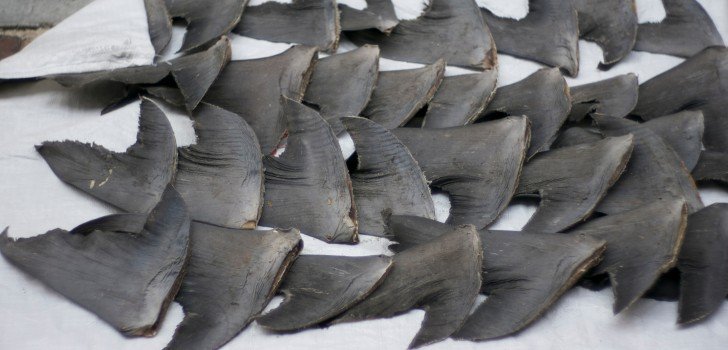Last month shipping giant UPS announced that they would no longer ship shark fins, in response to a petition to the delivery company that collected over 170,000 signatures. While the development appears promising, conservationists worry that the attention devoted to shark finning is taking the spotlight from more important issues.
Sonja Fordham of nonprofit group Shark Advocates International commented “When I started, most people were scared of sharks and didn’t care much whether they survived or not, so the show of support for their conservation is encouraging.”
Fordham, and others, still worry about the fact that the consumption of shark meat is sharply rising, even as shark fin consumption has dropped. Trading of shark meat has increased by 42% since 2000, according to a UN Food and Agricultural Organization (FAO) report.
Shelley Clarke, who co-authored the report, confirmed the findings, “When we started implementing these finning bans, we didn’t really see the catch rates going down.” She stated that the practice of finning itself may be responsible, where the body of the shark is often discarded while the animal is still alive. Clarke also pointed out the fact that Western consumers are not even sacrificing much in their campaign against finning, “It’s relatively easy to ban a product that you never use.”
Despite a ban against the practice of finning in the U.S., over 83,000 pounds of shark fins were exported from America in 2011. The closely related species of rays and skates are also subject to the practice of finning, which account for three times the number of catches as compared to sharks.
The U.S. ranked fifth in 2011 for the number of sharks and rays caught, placing it ahead of the combined total from Japan, Thailand, and South Korea. After updates in 2012 to import/export classifications to include rays and skates that were previously uncounted, brought the U.S. up to third-place among exporters for these animals.
Clarke has therefore advocated for a standardization of these products across markets, “We don’t need to highlight or point the finger of blame at certain countries. We need broad-scale systems and international management.”
Fishermen agree, but the difficulty remains that getting people excited about universal labelling requirements is not an easy endeavor.
Stay Connected